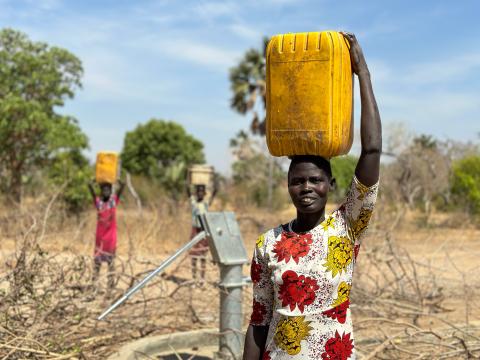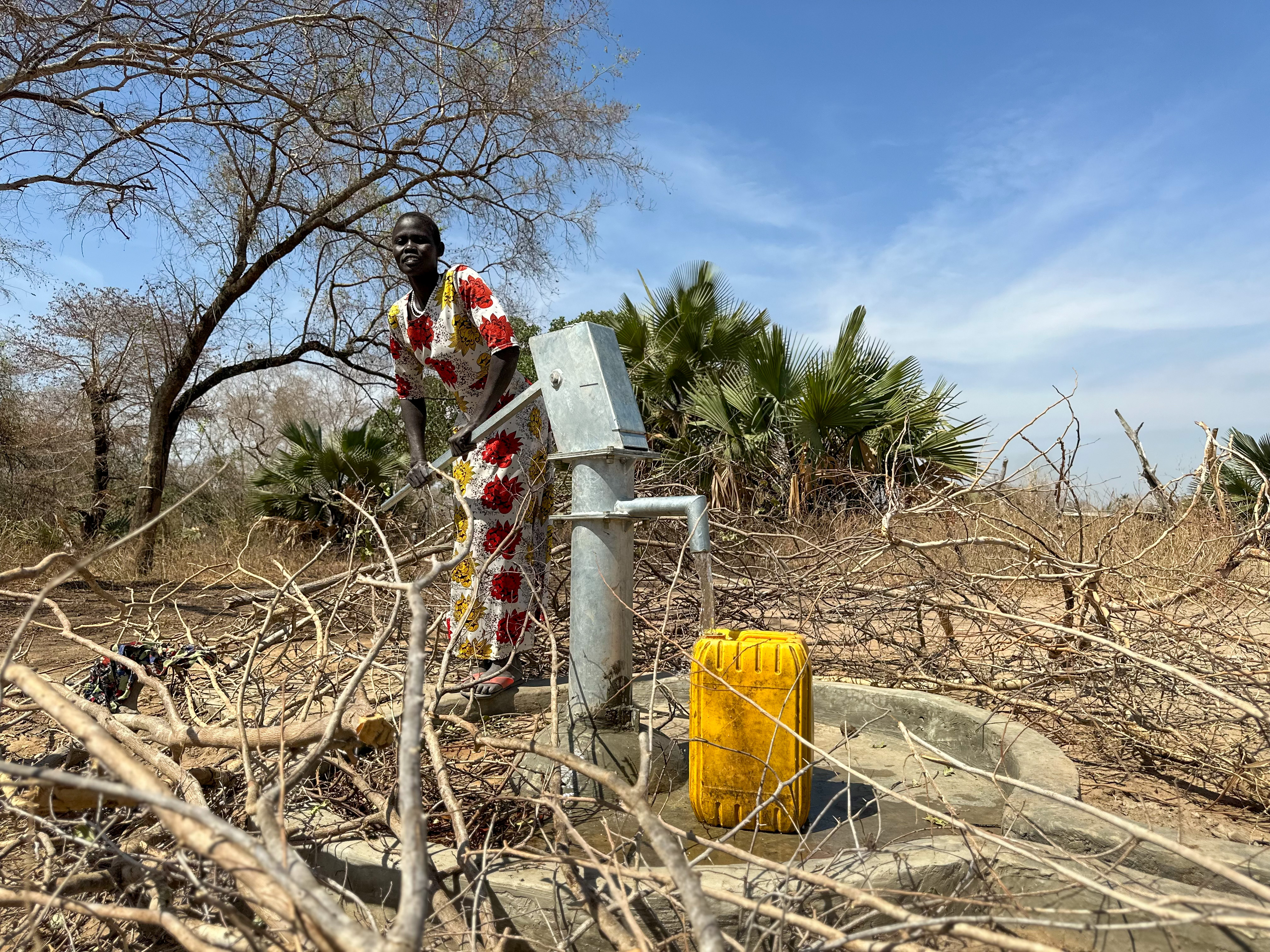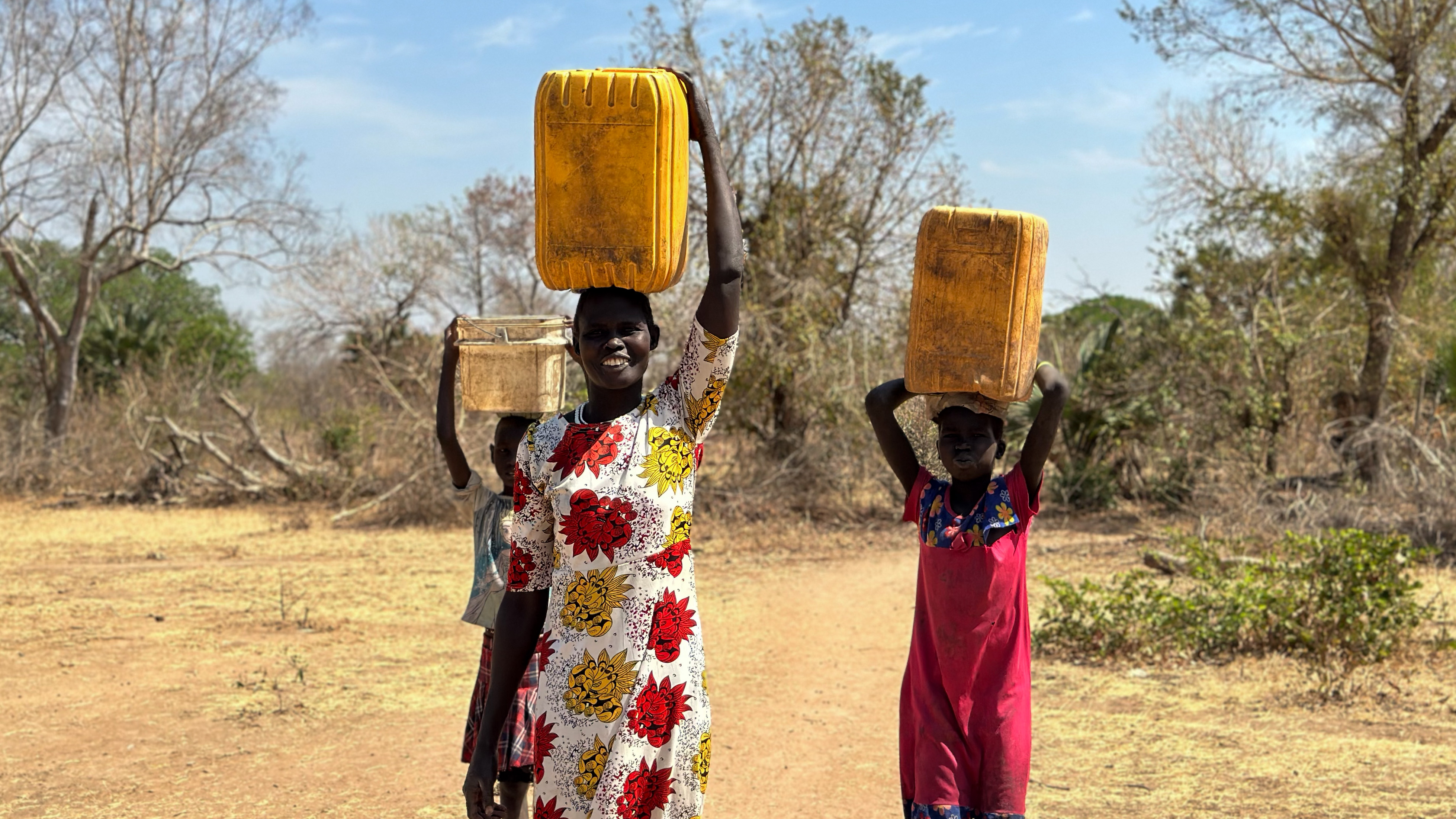South Sudan: Communities in Warrap state regain access to clean drinking water

Reducing and preventing illnesses require access to clean and safe drinking water. According to the World Health Organisation, lack of access to safe drinking water and basic sanitation is a public health concern in South Sudan, with more than half of the population having no access to sufficient and safe drinking water. World Vision, with funding support from Global Affairs Canada, rehabilitates eight boreholes, providing clean drinking water to more than 1,000 households in Warrap State in the Bahr el Ghazal region of South Sudan.
In 2005, World Vision constructed a public borehole in Liit Mathiang village in Tonj North County to serve communities with clean drinking water. However, in 2020, it broke down for over three years, leaving the community to depend on a single borehole meant for a school. At that time, it broke, and Liit Mathiang had fewer than 150 households. That same year, communal conflict occurred, which lasted for a year. The conflict drove many people from neighboring villages to flee Liit Mathiang. The surge of evacuees in the village added much strain on its already limited resources, especially water, because it only had one water point.
"In my area alone, I have a total of 250 households, and these households were getting water from one borehole, which was not enough. These people and the animals caused interference with the students at the school. People used to fight over water, and even the borehole was not accessible to many. People from the farthest community moved for about three hours to collect water, and most of them resorted to getting water from the wells, rivers, and rainwater, which caused many diseases," says Deng Akol Ageng, an elder and village chief of Liit Mathiang.
It is the women who suffer the most. They walk for long hours under the sun's scorching heat to collect clean water. By the time they arrive home, they are exhausted.
According to Deng, women were the most affected by the situation. "It is the women who suffer the most. They walk for long hours under the sun's scorching heat to collect clean water. By the time they arrive home, they are exhausted."
Ajak Lual, 38, a female resident of Liit Mathiang, reveals the challenges they faced after the borehole broke down. "Before this borehole was rehabilitated, we used to move for up to four hours to one of the villages in Tonj to get clean water. We could go in the morning and return in the afternoon, but you could not do much by the time you returned, and your children were dying of hunger. Life was difficult," says Ajak Lual.

In 2022 and 2023, World Vision rehabilitated eight boreholes in Tonj North, funded by Global Affairs Canada. It also rehabilitated the longest-serving borehole at Liit Mathiang, which had not been functioning for three years.
"This borehole was badly damaged. Its foundation was worn out. So, World Vision decided to rehabilitate it so the community could have more access to clean water. We brought the internal components and paid the mechanic. As a result, the community is happily getting clean water and keeping the borehole clean and protected from animals and dirt," says Malith Mayen, World Vision South Sudan Water, Sanitation, and Hygiene Coordinator.

"Rehabilitating this borehole gave us easy access to clean water again. I can now cook food for children and do other household work easily, so we thank World Vision and the government of Canada for caring about us," she says.
Deng applauded World Vision and the Government of Canada for their support and pointed out the need to establish more water points, especially in areas with no clean drinking water. "I am appealing for more water points because there will be no food if there is no water. With the drought now, we need water for us to be able to grow food such as okra and tomatoes. These vegetables can also help us earn an income."
Story and photos by Joel Bebe/World Vision South Sudan